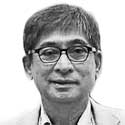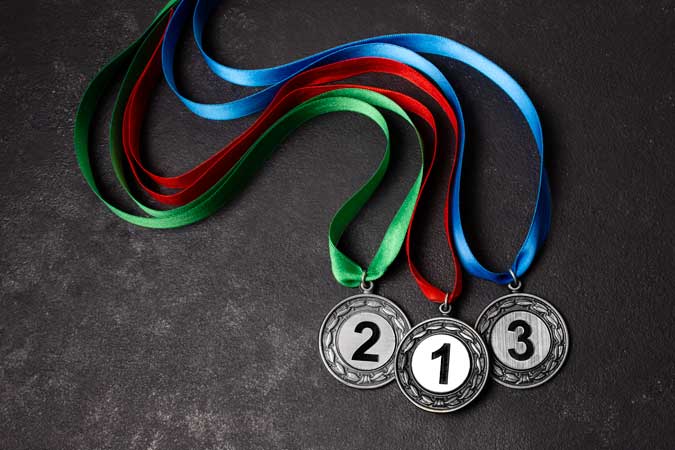
Earning Our Tomorrow
By Philip Ella Juico

In 12 days, on July 28, the 2020 Tokyo Summer Olympics get off the ground but well into 2021. The pandemic-delayed 2020 Tokyo Olympics is the first to be rescheduled to a later date since the cancellation of the 1940 and 1944 Olympics to allow the world, especially the devastated Europe, to recover from World War II.
Prior to the cancellation of the 1940 Olympics, Adolf Hitler’s totalitarian government in Germany hosted an Olympics, the Berlin Olympics, in 1936 which had a single theme. It was designed by Hitler and his propagandists led by Joseph Goebels to showcase Aryan supremacy. By dominating the Olympics, Hitler was sending a message that, “now we dominate sports, the Olympics, later we dominate the world.”
Hitler hoped to use the Olympics to demonstrate that it had recovered well from the shellacking it got from the allied powers. Of course, as history showed, he did not expect the likes of Black American Jesse Owens who topped both the sprints and the long jump in dominating fashion.
The Summer Olympics did come back in 1948 with London, damaged by the Germans’ relentless air attacks meant to weaken the British from waging a counterattack against the Nazis, serving as the host. It was clearly meant to show that Europe was back on its feet. The Brits and the rest of war-ravaged Europe benefitted from the Marshall Plan, reputed to be the most successful American aid program in history.
Japan, then an ally of Germany, benefitted too from assistance given to World War II losers, unlike so-called co-winner Philippines that sided with America in World War II, and the Korean and Vietnam wars.
The industrious and disciplined Japanese made full use of the post-war boost given by the United States. By the late 1950s, barely a dozen years after the atomic bomb attack on Nagasaki and Hiroshima and after its formal surrender in September 1945 on board the USS Missouri, the Japanese had established an industrial base that drew strength from a land-reformed agrarian sector and an affluent middle class.
Japanese industries had become internationally competitive by the mid 1960s and ’70s. Years earlier, a product tagged as “made in Japan” elicited cruel comments about its effectivity and durability. The world was, however, treated to world class Japanese products like cars, wristwatches, heavy machinery, appliances and other conveniences of modern-day living.
To top it off and to wipe away the embarrassment of a massive defeat, Tokyo won for the proud Japanese, the right to host the XXVIII Olympiad in 1964. Japan’s capital city had won the hosting right in 1940, or shortly before the outbreak of World War II in the Pacific, but the International Olympic Committee (IOC) refused to formally turn over the games to Tokyo owing to the invasion by Japan of China. The founding purposes and principles of the Olympic movement were incompatible with the acts of war of Japan.
The 1964 Olympics did proceed as planned, with more than 5,000 athletes competing in 19 sports. Among the competitors was a Filipino featherweight boxer from Far Eastern University, the 19-year-old Anthony Villanueva. Anthony’s father, Cely, who also served as his coach, captured the bronze medal as a bantamweight in the 1932 Los Angeles Olympics. Anthony did his father better by winning the silver medal after losing the gold medal fight to a Russian fighter in a close and controversial decision.
Villanueva’s medal was the first silver won by the country in, at that time, 40 years of Olympic participation since the Philippines competed in the 1924 Paris Olympics. The 2024 Paris Olympics, incidentally, marks the hundredth year since the City of Lights hosted what is regarded as planet Earth’s biggest event.
A summary of the Philippine participation in the Olympics shows that we have won 10 medals ever since we took part. Three of the 10 medals are silver medals in boxing and weightlifting: Anthony Villanueva, featherweight, 1964 Tokyo; Mansueto Velasco, light flyweight, 1996 Atlanta; and Hidilyn Diaz, women’s weightlifting, 2016, Rio De Janeiro.
The bronze medal winners were: Simeon Toribio, athletics — high jump, 1932 Los Angeles; Teofilo Yldefonso, swimming — 200-meter breaststroke, 1928 Amsterdam and 1932 Los Angeles; Jose “Cely” Villanueva, boxing — bantamweight, 1932 Los Angeles; Miguel White, athletics — 400-meter hurdles, 1936 Berlin; Roel Velasco, boxing — light flyweight, 1992 Barcelona; and, Leopoldo Serrantes, boxing — light flyweight, 1988 Seoul.
Compared with the rest of the ASEAN, the Philippines is unfortunately lagging with respect to Olympic gold medals won. Thailand, whose Olympic committee was accepted into IOC ranks only in 1948, has won a total of 33 medals. Twelve of these medals are gold, most of which were won in the 2004 Athens games.
Indonesia follows very closely with 32 medals, seven of which came from badminton. This Indonesian performance is clearly an example of leveraging on the country’s competitive advantage. Indonesia has ruled SEA Games badminton since it joined the regional games in 1977. The Indonesians closely contest the Asian games title with China. Indonesia’s main rivals in the Olympics are, aside from China, a host of European and Scandinavian countries. The country has won seven gold, 13 silver and 12 bronze medals for a total Olympics medal count of 32.
Singapore has one gold through swimmer Joseph Schooling who defeated the be-medalled Michael Phelps of the US. Vietnam, whose participation in the 1981 Manila SEA Games had to be subsidized by the Philippines and other nations, has gone ahead of the Philippines by winning one Olympics gold medal.
How are the other developing economies, especially in Africa, doing in the Olympics? Let us look at Kenya which, like us, has oscillated between autocracy and constitutional democracy. It has produced the highest class of middle-distance runners and marathoners despite prolonged instability. To date, it has won 103 Olympic medals, most of which came from athletics and boxing. Of those 103, 31 are gold medals.
Ethiopia which is, as I write this column, still embroiled in a bloody civil war marked by food blockades, has copped 22 gold medals, probably 85% of which come from athletics.
Jamaica, which has produced the likes of Usain Bolt, has won 70 Olympic medals, 22 of which are from track and field. Of these track and field medals, eight belong to Bolt.
What insights do we get from this narration of the Olympics performance of four other ASEAN nations, two African countries, and one Caribbean state? One thing sticks out like a sore thumb. We joined the Olympics way ahead of all these countries and we had organized sports long before they even had an Olympic structure, courtesy of the American collegiate sports system the Americans introduced in the early 20th century. And this is the common thread among most Philippine sports. We were No. 3 in world basketball in the 1950s. We were No. 1 in baseball in Asia. Our swimming team was second only to Japan in Asia. But with the rapid economic development of our neighbors and our lack of stability, continuity, and apolitical policies, we were left behind by the rest of the world which, because of a certain level of affluence, learned how to play these sports, leaving us to pick up the crumbs after they solved the problem of feeding their people. Communities had more time for leisure and recreation. Another discernible pattern is the conscious use by these nations of the principle of competitive advantage.
One advantage we have is our huge young population which we have failed to harness in our search for talent that can be developed to the highest international levels of success.
Winning Olympic gold medals should, however, not be the primordial concern of any country but rather the accessibility of sports and recreation to everyone as part of the principle of promoting the common good.
Giving sports the egalitarian character it deserves, and achieving international success as a solid political statement for international prestige and reputation are not exclusive of each other. Both can still be achieved by rolling out an honest-to-goodness mass-based, grassroots-oriented sports and physical fitness program starting with adding more hours to physical education in our schools and formulating a pragmatic and innovative elite athlete development program. Other countries have done an outstanding job of meeting both needs.
Philip Ella Juico’s areas of interest include the protection and promotion of democracy, free markets, sustainable development, social responsibility and sports as a tool for social development. He obtained his doctorate in business at De La Salle University. Dr. Juico served as Secretary of Agrarian Reform during the Corazon C. Aquino administration.